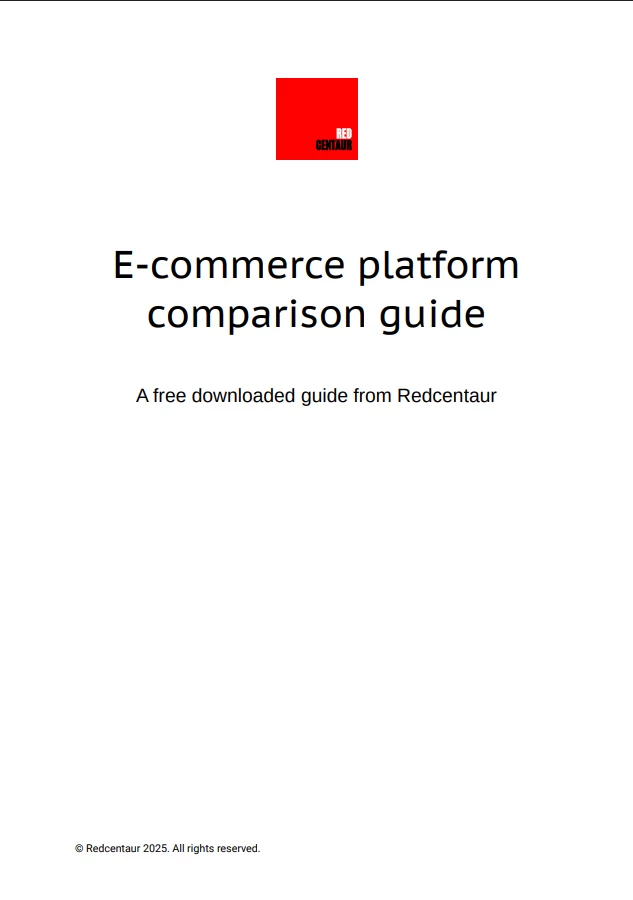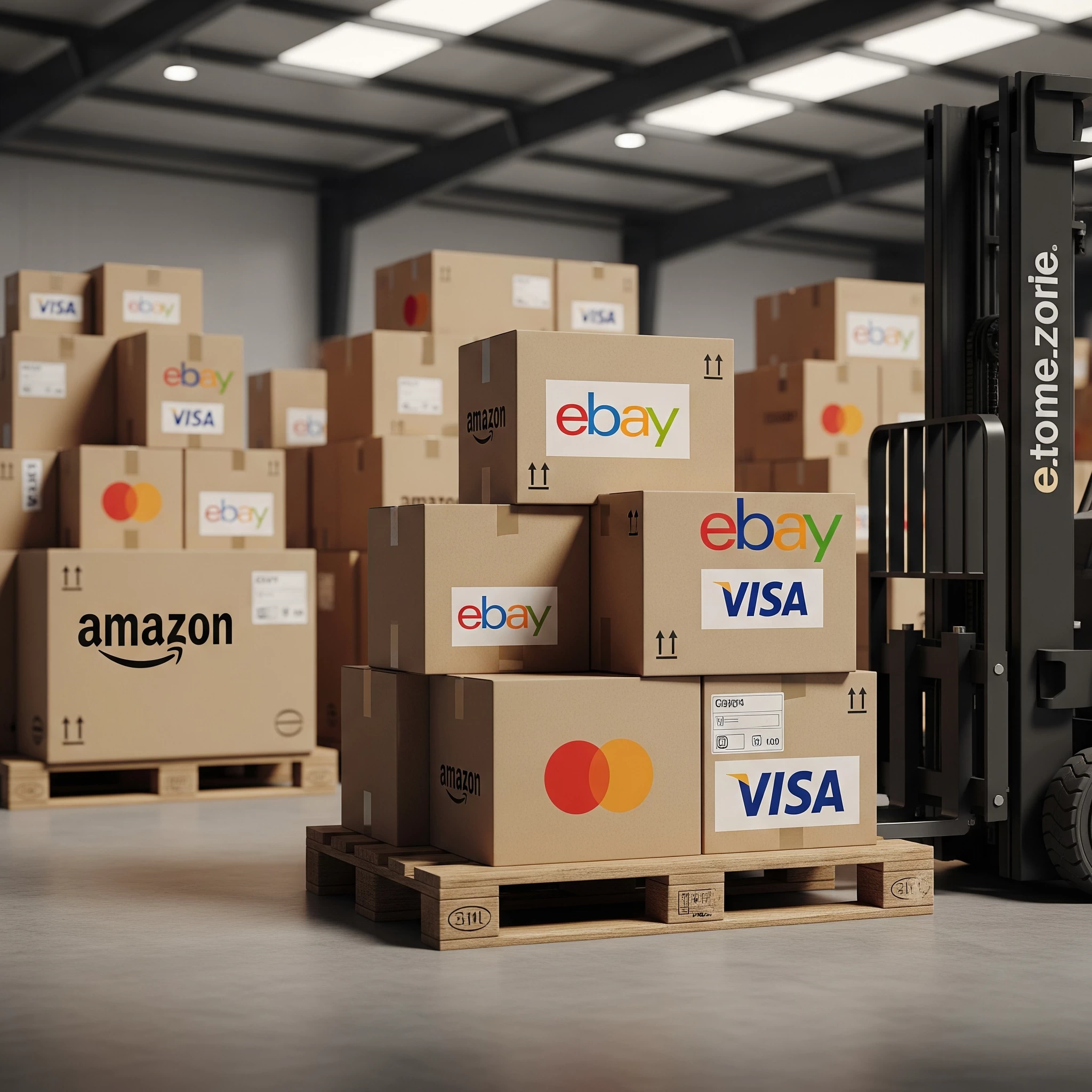In today’s digital world, having an e-commerce website is crucial for businesses aiming to thrive and expand their reach. An effective online store opens your doors to customers across the UK and beyond, 24/7. This comprehensive guide will walk UK businesses through the essential steps of setting up and optimising their e-commerce presence, covering everything from choosing the right platform to mastering marketing strategies.
Choosing the right e-commerce platform
Selecting the ideal e-commerce platform is the foundation of your online store. This choice significantly impacts your operational efficiency and scalability. Consider factors such as ease of use, scalability, features, and cost.
Many platforms cater to different business sizes and technical proficiencies.
Shopify, for instance, is known for its user-friendliness and extensive app store. It is a popular choice for businesses seeking a quick setup.
BigCommerce offers more advanced features and customisation options, often appealing to larger businesses.
Meanwhile, WooCommerce, a plug-in for WordPress, provides flexibility and control for those already familiar with the WordPress ecosystem.
It is important to research each option thoroughly. Evaluate their templates, integrations, and customer support. Ultimately, the best platform is one that aligns with your specific business needs and future growth plans.
Given that choosing the right platform is difficult, we’ve prepared a downloadable comparison guide for e-commerce platforms. So, why not download yours today?

e-commerce platform comparison guide
Looking to dive deeper into selecting your ideal online store foundation?
Don’t just read about it, compare it! Our comprehensive “E-commerce platform comparison guide” breaks down Shopify, WooCommerce, Magento, and more. Get detailed insights on features, pricing, scalability, and UK-specific integrations.
Download your free guide today and make the smartest choice for your UK e-commerce business.
Send download link to:
Setting up e-commerce payment gateways
Once your e-commerce platform is chosen, integrating secure and reliable payment gateways is the next critical step. This allows your customers to make purchases smoothly and confidently. A payment gateway acts as a bridge between your online store and your bank, securely processing transactions for you.
Common payment gateway options for UK e-commerce websites include PayPal, Stripe, and Square.
PayPal is widely recognised and trusted by consumers, offering various payment methods.
Stripe is favoured by many businesses for its developer-friendly tools and competitive transaction fees.
Square, often associated with point-of-sale systems, also provides robust online payment processing.
When selecting a gateway, consider transaction fees, supported currencies, and security features. Ensure the chosen gateway complies with industry standards like PCI DSS. Providing multiple payment options, such as credit/debit cards, digital wallets, subscriptions, and even ‘buy now, pay later’ schemes, can enhance the customer experience. This also increases conversion rates for your online store.
UK e-commerce regulations
Navigating the legal landscape of e-commerce in the UK is vital for compliance and building customer trust. Businesses must adhere to several key regulations to avoid potential penalties and maintain a reputable online store. Understanding these rules is not just about avoiding fines; it’s about protecting your customers and your business.
Key regulations include the Consumer Contracts Regulations, which outline distance selling rules, returns policies, and cancellation rights. The General Data Protection Regulation (GDPR) is another crucial piece of legislation. It governs how you collect, process, and store personal data from your UK customers. Your website must have a clear and accessible privacy policy. This policy should detail how customer data is used and protected. Furthermore, the E-commerce Regulations require businesses to provide clear information about themselves, including their legal name, address, and contact details. Price transparency is also mandated. Always ensure all prices include VAT where applicable. Consult with legal professionals if you are unsure about any specific regulations. This proactive approach ensures your e-commerce website operates within legal boundaries.
E-commerce shipping and logistics
Efficient shipping and logistics are the backbone of a successful e-commerce website. A well-organised delivery process enhances customer satisfaction and builds loyalty. Getting products from your warehouse to your customer’s doorstep involves several key considerations.
First, decide on your shipping strategy. Will you offer free shipping, flat-rate shipping, or calculated shipping based on weight and destination? Consider offering various shipping speeds, from standard to expedited.
Partnering with reliable courier services is essential. Royal Mail, DPD, UPS, and ParcelForce are popular choices in the UK, each offering different services and pricing structures. However, beware of their reputation: some courier services have very poor reputations for failed delivery and broken packages. Those angry customers come back to you, not the courier.
Integration with your e-commerce platform can automate label printing and tracking updates. Furthermore, think about your packaging. It should protect your products during transit and reflect your brand. Sustainable packaging options can also appeal to environmentally conscious customers. Returns management is another vital aspect of logistics. A clear and hassle-free returns policy can significantly improve the customer experience.
Marketing your online store
Having a fantastic e-commerce website is only half the battle; attracting customers to it is the other. Effective marketing strategies are crucial for driving traffic, engaging potential buyers, and converting them into loyal customers. A robust marketing plan helps your online store stand out in a crowded digital marketplace.
Search Engine Optimisation (SEO) is fundamental. Optimise your product descriptions, images, category pages, and blog content with relevant keywords to rank higher in search results.
Social media marketing can also be highly effective. Platforms like Instagram, Facebook, and TikTok allow you to showcase products, run targeted ads, and interact directly with your audience.
Consider investing in paid advertising, such as Google Ads or social media ads, to reach a broader audience quickly. But beware costs can increase rapidly if you don’t target niche audiences.
Email marketing remains a powerful tool for nurturing leads and retaining customers. Build an email list and send regular newsletters, promotions, and updates. Content marketing, through blog posts and guides, establishes your authority and provides valuable information to potential customers. For example, you could write articles about product usage or industry trends.
Mobile e-commerce
In today’s mobile-first world, optimising your e-commerce website for mobile devices is essential. A significant portion of online shopping now either occurs on smartphones and tablets, or at least starts on them. So, ensuring a seamless mobile experience is crucial for customer satisfaction and conversion rates. Many consumers research products on their phones and even complete purchases on the go.
A responsive website design is key. This means your online store automatically adjusts its layout and content to fit any screen size. Test your website’s mobile responsiveness across different devices and browsers. Focus on fast loading times, as mobile users often have limited patience for slow sites. Take particular care of optimising your images and putting non-essential scripts after your content.
Simplify your navigation and checkout process for mobile users. Large buttons, clear text, and minimal form fields enhance usability on both mobile devices and for disabled users. Consider implementing mobile-specific features, such as one-click purchasing or integration with mobile payment solutions like Apple Pay or Google Pay. A smooth mobile experience is vital for any successful e-commerce website. Without it, you risk losing a large segment of potential customers.
Ready to sell online? Contact Redcentaur to discuss your e-commerce website needs.
Further reading
Website development UK: A complete guide for businesses
5 key steps to perfect website planning
Finding the best e-commerce platforms for UK businesses





